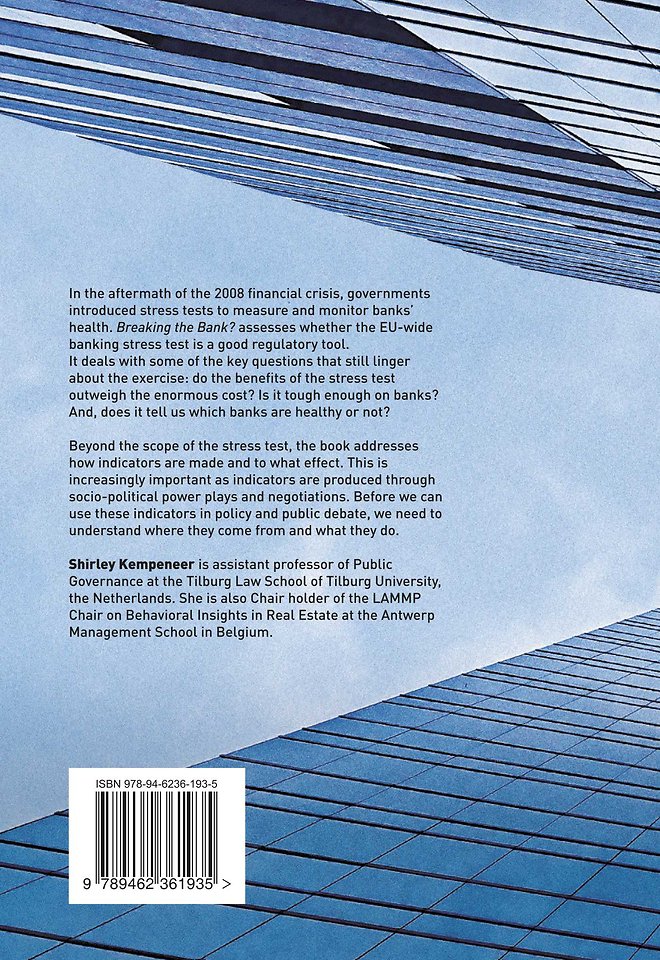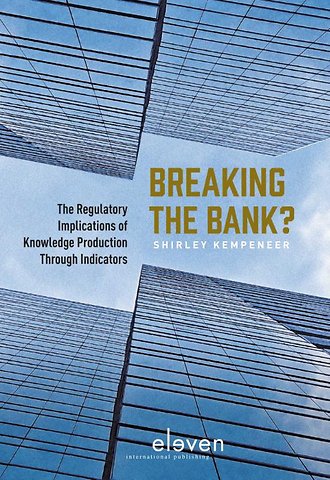Breaking the bank?
The regulatory implications of knowledge production through indicators
Samenvatting
In the aftermath of the 2008 financial crisis, governments introduced stress tests to measure and monitor banks’ health. 'Breaking the Bank?' assesses whether the EU‑wide banking stress test is a good regulatory tool. It deals with some of the key questions that still linger about the exercise: do the benefits of the stress test outweigh the enormous cost? Is it tough enough on banks? And, does it tell us which banks are healthy or not?
Beyond the scope of the stress test, the book addresses how indicators are made and to what effect. This is increasingly important as indicators are produced through socio-political power plays and negotiations. Before we can use these indicators in policy and public debate, we need to understand where they come from and what they do.
Trefwoorden
Specificaties
Inhoudsopgave
List of Abbreviations
1 Introduction
2 What We Know and What’s Left to Learn
3 Methodology and Methods
4 How Indicators Measure: The Incommensurables
5 How Indicators Manage: Using Numbers That Don’t Count
6 How Indicators Make: A Big Data State of Mind
7 Conclusion
References
Appendices
Anderen die dit boek kochten, kochten ook
Net verschenen
Rubrieken
- aanbestedingsrecht
- aansprakelijkheids- en verzekeringsrecht
- accountancy
- algemeen juridisch
- arbeidsrecht
- bank- en effectenrecht
- bestuursrecht
- bouwrecht
- burgerlijk recht en procesrecht
- europees-internationaal recht
- fiscaal recht
- gezondheidsrecht
- insolventierecht
- intellectuele eigendom en ict-recht
- management
- mens en maatschappij
- milieu- en omgevingsrecht
- notarieel recht
- ondernemingsrecht
- pensioenrecht
- personen- en familierecht
- sociale zekerheidsrecht
- staatsrecht
- strafrecht en criminologie
- vastgoed- en huurrecht
- vreemdelingenrecht









